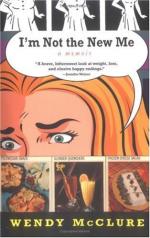“I do not remember whether this incident occurred during the session of the legislature in 1836-37 or 1838-39. But I think it was in that of 1836-37, when it was said that there was a great deal of log-rolling going on among the members. But, however that may be, according to the story related by my father, an effort was made to unite the friends of capital removal with the friends of some measure which Mr. Lincoln, for some reason, did not approve. What that measure was to which he objected, I am not now able to recall. But those who desired the removal of the capital to Springfield were very anxious to effect the proposed combination, and a meeting was held to see if it could be accomplished. The meeting continued in session nearly all night, when it adjourned without accomplishing anything, Mr. Lincoln refusing to yield his objections and to support the obnoxious measure.”
[Illustration: Office chair from Stuart and Lincoln’s law office.
The chair is now in the Oldroyd Collection in Washington, D.C.]
“Another meeting was called, and at this second meeting a number of citizens, not members of the legislature, from the central and northern parts of the State, among them my father, were present by invitation. The meeting was long protracted, and earnest in its deliberations. Every argument that could be thought of was used to induce Mr. Lincoln to yield his objections and unite with his friends, and thus secure the removal of the capital to his own city; but without effect. Finally, after midnight, when everybody seemed exhausted with the discussion, and when the candles were burning low in the room, Mr. Lincoln rose amid the silence and solemnity which prevailed, and, my father said, made one of the most eloquent and powerful speeches to which he had ever listened. And he concluded his remarks by saying, ’You may burn my body to ashes, and scatter them to the winds of heaven; you may drag my soul down to the regions of darkness and despair to be tormented forever; but you will never get me to support a measure which I believe to be wrong, although by doing so I may accomplish that which I believe to be right.’ And the meeting adjourned.”




